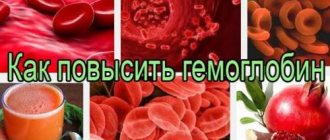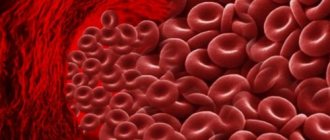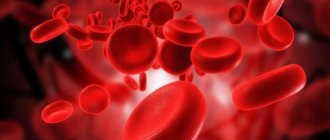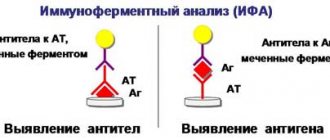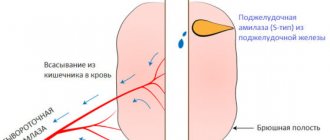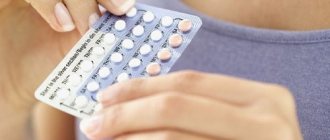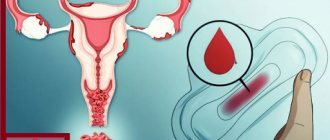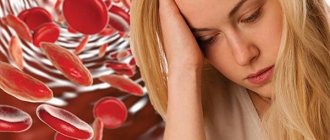Many of us, born back in Soviet times, probably remember such a wonderful sweet called hematogen. It was this chocolate bar, if I may say so, that often became the first sweet treat in life for Soviet children. But in addition to their wonderful taste, these bars have a lot of useful properties. But first things first.
According to historical facts, the first physician in the world to prove that there is a connection between physical exhaustion and blood loss was Sergei Botkin, who, among other things, created the doctrine of the body as a single whole that can be subordinated to one’s own will. However, for the first time, hematogen was created not by Russian figures, but by Western ones - Dr. Hommel released hematogen in 1890 in Switzerland. True, it was not a bar at all, as one might think, but a mixture based on bovine blood. The drug gained popularity and was sold even in our country. However, several decades later we had our own hematogen, as well as analogues based on it.
Composition: what is hematogen made from?
Hematogen contains black food albumin, sweetened condensed milk, starch syrup, vanillin and sucrose.
To improve the taste and give the product additional properties, various manufacturers add honey, jams, nuts, ascorbic acid, ferrous sulfate, aromatic substances, etc.
Composition of hematogen according to GOST
In accordance with GOST, the product must contain black food albumin (concentration per 100 g of hematogen - 4-5%), whole milk condensed with sugar (from 30 to 33%), starch syrup (from 18 to 23%), vanillin ( from 0.01 to 0.015%), granulated sugar (remaining percentage). Sometimes, to eliminate the bitterness of the finished product, hazelnuts (5 to 10%) are added to the hematogen.
What is hematogen made of, and how is this product made in general?
The active substance of the drug - black food albumin - is a water-soluble powder that is obtained from stabilized or defibrinated food blood.
or its shaped elements. The substance makes up 40 to 60% of the total plasma proteins and is the main plasma protein.
Albumin is responsible for binding cholesterol, bilirubin, fatty acids and acts as a carrier of certain hormones (including cortisone, thyroxine, aldosterone and triiodothyronine). Protein-bound hormones are in an inactive form, but are very easily mobilized.
Albumin, which is part of hematogen, is produced in such a way as to preserve the full value of the red blood cells that form its basis. The concentration of the substance in one slab of the drug is 2.5 grams.
When producing the product, purified water heated to 40°C is poured into a digester with a stirrer and granulated sugar is added to it. With continuous stirring, the mixture is brought to a boil and held until the sugar crystals are completely dissolved. After this, whole condensed milk and starch syrup are added to the boiler and the mixture is allowed to boil.
The finished syrup is thoroughly mixed, filtered and placed in a spherical vacuum apparatus. The finished mass should resemble toffee candies in color. The readiness of the product is determined by the caramel test: the syrup, dipped in cold water, should quickly harden and become brittle.
If the mass is ready, it is quickly poured into a mixer greased with vegetable oil, stirring constantly, cooled to 60°C and gradually begin to introduce albumin and - to improve the consistency of the finished product - cuttings of hematogenous tiles obtained from previous batches.
Next, the mass is cooled to 40°C and vanillin and vitamin C are added to it. Tiles are formed from the finished “taffy” mass, which are then dried on racks until their moisture content is 8%.
How many calories are in Hematogen?
Calorie content 1 pc. hematogen according to GOST - 504 kcal. The calorie content of hematogen containing hazelnuts is 700 kcal.
Considering what hematogen consists of, one can evaluate its benefits and harms. The product contains a lot of sugar, which is contraindicated for diabetics and people with a body mass index of more than 30 kg/m2.
Main contraindications and health hazards
Many experts warn that hematogen should not be taken uncontrolled due to the following features:
- Hematogen contains black albumin, a dietary protein isolated from dried cattle blood. It can cause severe allergic reactions to blood components, as well as additives included in the drug.
- Also, when preparing blood used for the manufacture of dietary supplements, polyphosphates are used. Their main function is to remove calcium from the body. This leads to such serious consequences as rickets or spasmophilia in children.
- Difficult-to-digest carbohydrates included in the bar are contraindicated for consumption by people suffering from diabetes, hypercholesterolemia or obesity.
Contraindications to the use of this drug are also vascular diseases of various origins:
- thrombophlebitis;
- phlebothrombosis;
- phlebeurysm;
- atherosclerosis.
It is believed that hematogen negatively affects the blood coagulation system and increases the risk of blood clots, so you should not take it for these pathologies. Its use with antibiotics from the group of cephalosporins, fluoroquinolones, and aminoglycosides is contraindicated. It is not recommended to include it in therapy together with NSAIDs, antihypertensive drugs, and diuretics.
See also: Gluten - what it is and why it is harmful, where is the list of products
Pharmacodynamics and pharmacokinetics
The drug is used to correct metabolic processes. It is a source of fats, complete protein (that is, protein in which all amino acids are contained in the optimal ratio for the body), minerals and carbohydrates, which are present in Hematogen in proportions similar to the composition of human blood.
Stimulates hematopoiesis, increases the content of red blood cells in the blood of people who suffer from anemia, promotes better absorption of iron in the intestinal tract, increases the content of Hb (hemoglobin) in the blood and the plasma concentration of ferritin (a globular protein complex that acts as the main depot of iron inside the cell), improves morphological characteristics of erythrocytes (including eliminating microcytosis and hypochromia of erythrocytes, and also increasing their average diameter).
Hematogen contains a large amount of vitamin A, due to which the product has a beneficial effect on the condition of the skin, hair and nail growth, and vision.
Studies of the pharmacokinetic profile of the drug have not been conducted.
Features of reception for adults and children
The main purpose of hematogen is not therapeutic, but prophylactic.
Dietary supplements can only act as an additional remedy for anemia and other hematopoietic disorders; in no case should they replace therapy prescribed by a doctor.
Through food, the human body receives about 20% of the daily requirement of iron, so it is not very often that Hematogen is useful for any healthy man to take, especially those who eat dry food or prefer fast food. Women need iron-containing foods even more because they lose some blood each month during menstruation. During pregnancy and lactation, you can take Hematogen only with the permission of a doctor, so as not to harm the fetus or newborn.
Beneficial features
If you use the drug correctly and in the absence of contraindications, it will only bring benefits. The nuances of application depend on the composition of the specific product. Each person can choose the bar or bar that best suits them.
Positive consequences of taking hematogen:
- improving hematopoiesis by eliminating iron deficiency;
- an additional source of essential amino acids and proteins;
- has a beneficial effect on the body during stress and helps to avoid negative consequences from nervous stress;
- compensates for nutritional disorders;
- Helps the male reproductive system produce healthy sperm;
- helps normalize metabolism.
The drug will increase the level of hemoglobin in the peripheral blood, have a positive effect on the condition of hair, nails and skin, and improve the overall well-being and performance of a person.
Does taking hematogen increase hemoglobin? — Dr. Komarovsky
It is advisable to use Hematogen for those who have suffered long-term infections or a course of chemotherapy; it will help blood donors recover, and is indicated for professional athletes as an energy drink and a source of protein. For people who do not like meat dishes, hematogenous bars are necessary, as they contain substances that can replace similar ones not supplied with food. There are cases when taking hematogen becomes necessary, these include:
- Insufficient or inadequate nutrition.
- Chronic diseases with reduced immunity.
- Diseases associated with hematopoiesis, for example, anemia.
- Serious blood loss.
- The period after surgery or a serious illness. Withdrawal syndrome.
- Hemorrhoids, stomach or duodenal ulcers, internal bleeding and bone fractures.
- Functional visual impairment.
The usual dosage for an adult is 50 g per day, which is equivalent to one standard bar, and should only be changed on the advice of a doctor. The drug should be taken between meals. The course lasts 1-2 months, after which it is advisable to do a test to find out whether the level of iron in the blood has changed.
Hematogen - benefit or harm? 1 part
Children can be given hematogen after the age of three. The required amount of iron is 5-15 mg per day, which corresponds to approximately 20-30 g of a regular bar. It is better to divide the dose into 2-3 times. It doesn't hurt to treat your baby to a healthy treat after baby teeth are removed or knees are scraped. Other indications for use:
- poor vision;
- retardation in growth and physical development;
- skin problems;
- drowsiness and moodiness;
- Iron-deficiency anemia;
- chronic and acute diseases (as prescribed by a doctor).
Teenagers need iron no less than children and adults.
The use of hematogen in an amount of up to 40 g per day will help fight drowsiness, increase immunity, which is especially important when children are in a group, and improve academic performance, since it will be easier for the child to endure high stress at school. Typically, the recovery course lasts 2-3 weeks.
HEMATOGEN is not a benefit, but a HARM!
The harmful effects of the drug appear when it is used uncontrollably. An overdose causes nausea, vomiting or diarrhea, and if you continue to abuse the bars, forgetting that hematogen is not a candy, but a medicine, more serious consequences may occur.
Excess iron is more dangerous for the body than its deficiency. It affects various organs, but most of all the liver, heart and pancreas.
External manifestations are rapid heartbeat, apathy, yellowing of the mucous membranes of the nasopharynx and sclera, the appearance of pigmentation on the arms and legs. If you experience such symptoms, you should immediately consult a doctor. To avoid hypervitaminosis, it is advisable to refrain from taking vitamin complexes simultaneously with hematogen.
Other contraindications:
- types of anemia not associated with iron deficiency;
- diabetes;
- obesity;
- tendency to allergic reactions to food additives;
- thrombophlebitis and varicose veins;
- liver pathologies.
The same rule applies to protein foods - meat, fish, liver. The drug is not recommended for convinced vegetarians, as it contains an extract from the blood of animals, as well as for people following a salt-free diet. The large amount of easily digestible carbohydrates in hematogen casts doubt on the advisability of its use during pregnancy, since the harm may be greater than the benefit - a sharp increase in the weight of the expectant mother and the appearance of blood clots due to blood thickening are possible.
You should be careful when using the bars when treating with diuretics and anti-inflammatory drugs such as ibuprofen, diclofenac, indomethacin and some others. You cannot combine hematogen and antibiotics. Heart medications and drugs for normalizing blood pressure - vesanoid, penicillamine, sulfamethoxazole - do not combine well with it.
Indications for use: why is hematogen needed?
The use of Hematogen is indicated for:
- anemia, which is associated with a deficiency of hemoglobin formation factors (in particular, with anemia, which is a consequence of blood loss);
- malnutrition;
- chronic diseases (in particular, peptic ulcers, in which frequent, often unnoticed bleeding is possible);
- visual impairment;
- conditions that occur with malnutrition and/or cachexia;
- traumatic lesions of bones and soft tissues;
- slow recovery of body weight.
The use of hematogen is also advisable for accelerating tissue healing after injuries and surgical interventions, as well as during the period of convalescence after infectious diseases;
Indications and contraindications
Hematogen during pregnancy can be prescribed both for preventive purposes and to eliminate the symptoms of existing pathologies.
Main indications for the use of this drug:
- Iron-deficiency anemia;
- general exhaustion due to stress, poor nutrition, increased stress;
- gastrointestinal ulcers accompanied by internal bleeding;
- visual impairment caused by vitamin A deficiency in the body;
- hypovitaminosis;
- malnutrition in a child.
Like any drug, Hematogen has certain limitations and contraindications for use. These include hypersensitivity to any component of the product and allergic reactions.
It is prohibited to prescribe Hematogen if you have a history of diabetes mellitus and anemia not associated with a lack of iron in the body. If you have hematochromatosis and hemosiderosis (excess iron), as well as impaired absorption of iron, the drug should not be taken.
Contraindications for prescribing the drug are the presence of varicose veins in the expectant mother, thrombophlebitis, metabolic disorders and obesity. Prescribing hematogen to a pregnant woman means that she cannot use other iron-containing drugs.
Hematogen will not cause harm during pregnancy if the expectant mother does not prescribe it to herself. Compliance with the dosage prescribed by the doctor ensures that the drug will benefit the health of the woman and baby.
special instructions
Hematogen - what is it?
Hematogen is a product with medicinal and restorative properties, which is obtained from dry blood of slaughtered animals, purified in vitro from fibrin protein. The name is translated from Greek as “giving birth to blood.”
The value of the extract obtained in this way is that iron is present in it in the form of purified hemoglobin - an iron-containing protein that stimulates the formation of red blood cells.
Hematogen is used as a protein supplement to food during periods of increased mental and physical stress, and is also used in the treatment of iron deficiency anemia (IDA).
The dosage form of the drug is primarily intended for children of various age groups. After all, it is in childhood that the highest frequency of cases of IDA and cases of malnutrition occurs.
A developing child's body needs an increased amount of macro- and microelements, vitamins and protein, which it needs to maintain the normal course of metabolic processes.
In particular, prophylactic use of Hematogen is indicated during the child’s puberty, as well as in situations when the body’s need for iron increases (for example, during sports competitions).
The good taste of the drug allows it to be used in sick children with decreased appetite.
Is Hematogen useful for adults? Undoubtedly. As in children, in adults the drug is a source of amino acids (both replaceable and essential, the deficiency of which is replenished only if they are sufficiently supplied with food), iron, complete protein, and microelements.
In addition, the product is rich in fat-soluble vitamins. One slab of the drug is enough to compensate for the daily need for vitamin A, which is a powerful antioxidant, stimulates metabolism, increases the stability of the mucous membranes of the digestive canal and respiratory organs, and also helps to normalize visual function.
What is hematogen - a medicine or a dietary supplement?
Wikipedia states that, from a medical point of view, hematogen is a vitamin-like drug, since its pharmacological action is beyond doubt. However, when compared with modern drugs for the treatment and prevention of IDA, it is less effective.
If we talk about the legal side of the issue, then some drugs, the basis of which is the blood of slaughtered cattle, are registered as medicines, and a number are registered as dietary supplements. At the same time, the composition of a medicinal product and a food additive, as a rule, has minimal differences, and they primarily concern flavoring fillers: honey, nuts, jams, etc.
Thus, Hematogen can be considered a dietary supplement or a medical product under the influence of administrative and financial factors.
On the one hand, in Russia, medicines are taxed less than most other goods, therefore, it is much more profitable for the manufacturer to sell Hematogen, which is registered as a medicine.
On the other hand, dietary supplements do not undergo such strict quality checks as medications, and their sale can be carried out not only through pharmacy chains, but also in other specialized stores.
Hematogen: benefits and harms
How is Hematogen useful for adults and children? A tasty medicine based on the plasma protein albumin improves metabolic processes, vision, increases the protective properties of the mucous membranes of the respiratory and digestive tract, replenishes the deficiency of iron, vitamin A, proteins, minerals and carbohydrates, and normalizes appetite.
However, it should be remembered that uncontrolled use of Hematogen, as well as taking it with incompatible drugs, can lead to undesirable consequences. It is important to remember that the product has contraindications, and not everyone can take it.
The presence of a large amount of carbohydrates in Hematogen can provoke weight gain, which is extremely undesirable for diabetics, pregnant women and people prone to obesity. In addition, the drug increases blood viscosity, thereby provoking thrombus formation.
Precautionary measures
Hematogen should be taken with caution by persons with:
- potential risk of bleeding (including a history of peptic ulcer, hypocoagulable conditions, etc.);
- ischemic cerebral circulatory disorders;
- severe arterial hypertension, which is not amenable to drug correction;
- diabetic retinopathy;
- severe liver diseases.
The product is not recommended for persons undergoing repeated ophthalmological or neurological operations, as well as during epidural or spinal anesthesia
.
Release forms
Hematogen is produced under different labels, and its presentation to consumers and the place of sale depends on this. The product can be registered:
- As a biologically active food additive (BAA).
- As a confectionery product.
- Like a medicine.
Most often, this sweetness is classified as a dietary supplement, and can be purchased in pharmacies or in specialized departments of retail outlets. Medicines are sold only in pharmacies. Available in the form of bars, sweet bars or chewable lozenges.
Some confectionery products have similar names, but do not contain albumin, i.e. they are simply sweets that do not contain iron, so be sure to read the composition of the product before purchasing. Its packaging must be undamaged and sealed, and the time elapsed from the release date must not exceed the expiration date. Expired bars or tiles become hard and lose their nutritional and preventive value.
Hematogen: a terrible delicacy or a wonderful medicine?
Hematogen for weight loss
The introduction of Hematogen into the diet of a person on a diet for weight loss helps maintain the required level of hemoglobin and compensate for the need for vitamin A.
However, in order to maintain the good condition of teeth, nails, skin and hair in conditions of insufficient supply of nutrients, the body needs many minerals and B vitamins, which are not present in Hematogen.
Answering the question whether it is possible to eat Hematogen on the diet, doctors say it is possible, but in limited quantities and not for long. The maximum duration of continuous use is 3 weeks.
The dose should be calculated so that for 45 kg of weight there are about 15 grams of product per day. The portion during the day is divided into 3 doses.
It must be remembered that Hematogen has the ability to accumulate in the body and is not removed from it at once. If a person follows a long-term diet, designed for months or even years, he should take Hematogen in courses, maintaining intervals of 2-3 months between them. Before resuming taking the drug, it is recommended to take a general blood test.
A deficiency of nutrients caused by dietary patterns can cause blood thickening even with sufficient fluid intake into the body. Most diets involve limiting the intake of salt, and liquid, in turn, with a lack of salt, is excreted from the body very quickly along with metabolic products.
If hemoglobin levels are normal (for women - 120-130, for men 140-160 g/l), hemoglobin should not be introduced into the diet. Instead, in consultation with your doctor, you can take a balanced multivitamin complex.
How to use hematogen
Hematogen today can be purchased as bars, tiles or chewing strips. The dosage can be different: from 20 to 50 grams. Children from 3 to 6 years old can take 5 grams 3 times a day. Children from 6 to 12 years old are prescribed two doses of 10 grams. Children from 12 to 18 years old can take no more than 10 grams of hematogen 3 times a day.
Adults can take 5-15 grams 2-3 times a day. Pregnant women are given a maximum of 50 grams per day (various numbers of doses). People of any age can take Hematogen for 14 to 21 days (course). If you are pregnant, ask your doctor about the course of taking this dietary supplement; there may be individual differences. Hematogen must be taken between meals to ensure complete absorption of nutrients.
Hematogen can be washed down with clean water. But you don’t need to drink it with milk or other dairy products, as this will worsen the absorption process. You cannot take vitamins in courses together with hematogen. If you need to take other medications in parallel with the course of Hematogen, consult your doctor. This is a serious question, although you may mistakenly think otherwise.
Hematogen during pregnancy: is Hematogen possible during pregnancy and breastfeeding?
During pregnancy, the drug is prescribed only as indicated, in limited doses and only in cases where the benefit of the hematogen for the woman outweighs the risk to the developing fetus.
Why shouldn’t pregnant women use Hematogen?
The ban is due to the fact that a high concentration of hemoglobin leads to thickening of the blood and, as a consequence, to thrombosis and embolism of the capillaries of the placenta, which in turn negatively affects the condition of the fetus.
The product is quite high in calories, which can cause sudden weight gain. In addition, due to changes in hormonal levels, a pregnant woman’s body may “respond” to its intake with an allergic reaction.
How is hematogen useful for pregnant women?
However, there are situations when during pregnancy the benefits of Hematogen for women outweigh the potential risks. In some cases, doctors may recommend this remedy for the prevention and treatment of iron deficiency anemia.
So, to give a clear answer to the question “Can pregnant women eat Hematogen?” pretty hard. A doctor can recommend this product or, on the contrary, prohibit it only taking into account the characteristics of the course of pregnancy and the body of the expectant mother.
Can a nursing mother use Hematogen?
Use during breastfeeding is possible only with the approval of a doctor.
The benefits of hematogen for the human body
Haematogenum tastes more like some kind of delicacy than a medicinal product. But we must not forget that it is applicable only for certain symptoms and strictly according to indications. Undoubtedly, this sweet dietary supplement brings great benefits to the body.
Why is hematogen needed?
The anemic condition has been known since ancient times. It can be either a separate pathology or a symptom of a more serious disease. Most often, the root cause of the disease is iron deficiency. Hematogen reduces the risk of anemia and improves overall well-being. In addition, it is quite tasty and is enjoyed by both adults and children.
First of all, this delicacy has a beneficial effect on hematopoiesis. The iron contained in the composition ensures oxygen saturation of the blood and tissues. This remedy is recommended to be used to maintain the general tone of the body against the background of psycho-emotional shocks, stress, and grueling physical activity. It is also important for normal development in childhood and promotes growth and intellectual development. The dietary supplement contains vitamin A, which improves vision, skin and hair condition.

